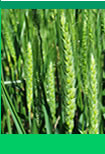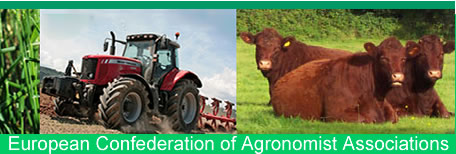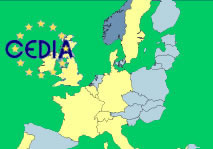


|
Minutes of Meeting of the Employment Services of the 30th of September 2005 Baar, Switzerland The third Employment Services Meeting of the CEDIA has been held in Switzerland with the purpose of coming to practical conclusions on how the service to the members of the different associations shall be improved and broadened. This objective is in line with the program of activities proposed by the new President A.Krohn. Four main ideas made the framework of the meeting organised by H.Schmid, the President of the Swiss Association, SVIAL:
The attendance reflects the interest of the different national associations: it is a mix of countries having generally an elaborate system offering a substantial support to their members but looking for improvement and extension and of countries having no service at all looking for information and ideas on the subject. Cyprus: represented by S.Stylianou. Greece: represented by S.Rennas. Denmark: represented by S. Tarrild and S. Lindholt both involved in the same service, France: represented by S.Romon, in charge of the Employment Service Germany: represented by B.Niefind supervising the German service Ireland: represented by J. Fitzgerald, President of the Irish Association that includes an Employment Service. Portugal: represented by A. Krohn da Silva, also President of the CEDIA. Switzerland: represented by H.Schmid President Cyprus and Greece have no Employment Service but are considering the possibility of the creation of such a support to their members and look for ideas.
In total height countries participated actively, out of the eleven countries members of the CEDIA. This participation is a success in itself as well as the fact that most of the attendants were directly involved in Employment Services. 1-Improvement or creation of Employment Services (ES) As a number of participants were new to the meeting, it was requested that each country having an ES shall present it to the other participants. In order to record the basic information of each country, it was requested that all the Associations shall fill the form prepared by S.Romon last year. Switzerland: The monthly mailing service that SVIAL sends to its members contains “Yellow pages” dedicated to job offers. SVIAL is contacted by the companies or organism looking for staff and propose the job. The offers describe the type of degree requested (ETH-Technical Institute of Zurich, SHC-Technician schools). The job offers are usually in French or German but sometimes also in English. About 60 to 70 jobs are offered every year. Information is also received from France and Germany that is made available only to the SVIAL members. SVIAL is also offering training on job applications. This is basically the services rendered by SVIAL. There is yet no introduction of the jobs offered on the Website as the restriction of access to the members shall be operational only in 2006. The Swiss engineers are most of the time working in Switzerland but some are completing their training by a master or another degree abroad and look for opportunities in other countries. In that respect, if the CEDIA could offer an access to international jobs, it would be an interesting opportunity. The present rate of unemployment is only of 3.5 % in average in the country but there are contradictory trends for the future: the present population is aging and the number of agronomists shall decline in the future. In the same time, the market shall decline with the reduction of the protection of agriculture and the changes in the profiles requested: the need shall be more for research and more for biochemistry/technology, life science, environmental protection etc.
Germany: (see also the site Agrijob) Agrijob is produced by the cooperation between VDL, the magazine Agrimanager and the different institutes of agriculture. It is accessible directly from the VDL Website and it arranges contacts between job seekers and employers. It has a comprehensive system of presentation of the job seeker profile, expectations etc. No name appears on the file and the job seeker is contacted via a code system. The employer can enter his job offers for a cost of 60 to 70 Euros a month. The site, open to everyone receives about 1500 visits a month. The number of jobs offered is far higher than the number of job seekers. Though the language
shall be a problem for most of the job seekers, VDL is interested
in seeing an extension of offers to international jobs through the
CEDIA. Cyprus: Cyprus is a small country where the information on jobs is easily available through direct contacts. There is no ES within the association as it does not seem necessary for the time being. In addition, the structure is very small with only a part time secretary working in the association. Cyprus is nevertheless interested in creating some sort of ES as the situation may evolve and require a more structured approached: the entrance in the EU, the new requirements of the employers linked with new regulations may introduce different needs and job profiles. In Cyprus the title of agronomist is attributed by a Committee to which an application has to be made describing the type of studies the applicant has made, the degrees he has obtained and other professional information. 550 agronomists are recognised by the Committee.
Portugal: In Portugal, the ES are regionalised and the three regions of the “Ordem” have their own ES, offering employment opportunities. Centrally, three services are offered:
Greece: Greece has no ES and its situation is very similar to the one of Cyprus but the association has 28 000 members. The graduates have to be registered in GEOTEE before being allowed to work either in the private or in the public sector. It covers agronomy, forestry, veterinary, geology and Ichtyology. Most are graduates from the biology universities. Greece is interested in the experience of other countries in order to evaluate the interest of an ES for its members. Ireland: (see alsothe site of the ASA) The jobs offered have been in the past very much in the traditional functions of agriculture and not for the new jobs. The young graduates tended to drift away from ASA. The scope of the jobs offered has been broadened and the young graduates are coming back to ASA. ASA is very much involved in permanent education. It is conducting a study on the subject (see further down under “Permanent Education”) ASA is producing
a CPD (Continuous Professional Development) folder of such training. Denmark: The organisation is covering a large range of engineers with different titles: horticulture, forestry, landscape, land resource management, economics, etc. In the future they shall come under the umbrella of “Master of Sciences” and there shall be a global management of the ES under this umbrella. The association is registering 85% of the graduates and comes to a total number of 5 500 members. The association itself is publishing offers from employers on the basis of 500 Euros for a full page in the association publication and an inclusion on the Website. Eight to ten jobs are offered every fortnight. It takes about 5 months for a new graduate to find an employment. The salary for a new graduate is about 3.000 Euros. There is not much need for a personal profile application by the association as a number of interlinked sites already exist. At the association itself, additional service to the governmental organisation is given to unemployed people. It is almost compulsory to obtain the social benefits. It also helps the 5.2 % of members that are unemployed with services like CV redaction. A number of people are looking for jobs abroad but they face two difficulties: the language problem and the return in Denmark, especially if they work in non European countries.
France: (see also the sites of the "Ingénieurs de l'Agro and of the UNIA) The French system is different from the rest of Europe: education takes place in specific schools that deliver a diploma after 5 years of study. In total 1000 students are educated every year. After two years of “drill”, a concourse gives access to the schools and the students are choosing according to their ranking. The top of the list is joining the National Institute of Agronomy (INAPG) and the others the other schools. Two associations exist: one for the INAPG graduates (3000 members) and UNIA for the graduates of the other schools (2000 members). The two associations shall be joined next year with only one ES. The association offers a free publication of the job offers. It helps all the graduates in their search of jobs by the redaction of CV, letters and other means. It is the most attractive service of the association. As the number of graduates registered is limited the number of unemployed is not known. It takes between 1 and 6 months for a young graduate to get a job. It may take more than one year for somebody above 45. A large number of graduates are working outside the traditional sector of agriculture like information technologies, banking and others. The association is promoting the concept of “Life Science” more than “agriculture” that reflects much more the scope of activities of the graduates and the trend for the future.
Conclusion and action: Everybody shall fill in the first form presented at the end of the minutes under the title “Data acquisition for the CEDIA” by the 7-10-05. Missing are: Greece, Cyprus, Demark, Germany, Portugal, Belgium, and Italy. Document is to be sent to L. Tirelli (by Mail). The information collected is for internal use within the CEDIA members. Introduction on the Website may be considered in the future.
2- Organisation of a network of European Employment Services. The organisation of some kind of network in order to give a support to members of the associations looking for jobs abroad has been a subject treated in previous meetings. There is no formal way of proceeding in such a case.
Decision and action: Every association shall fill a document equivalent to the “Employment Service for French Association” that shall describe the services offered by each association. Action: all the associations This information shall be published in a special “News” page of the Website in a first step and possibly in a specific page later. The description shall include the complete address of the association (available in the “Data acquisition”. The Email address of the ES of the Association and a link shall be created in this page. Action: L.Tirelli as soon as the information is available The purpose is to make available to members looking for help the information and the contacts When a member of an association is looking for information in another association, the basic lines for the procedure shall be the following: The person requesting information shall contact the association ES via the address included in the information page recorded in the Website. He shall indicate the Email address of his ES of origin. The Association contacted shall check through this address the validity of the request (demander really belonging to the association in reference) and follow up accordingly. Decision and action: L.Tirelli shall propose a two line text describing this procedure that shall be included as an introduction in the “News” page dedicated to the ES. The implementation of these actions has to be made without delay by the participants. As soon as substantial progress is made, the other countries shall be encouraged to do the same.
3- Permanent Education/Training. Some discussion took place about the designation of this type of training. It is agreed to nominate it in the future “Continuous Professional Development” that has a broader meaning than Education or Training. It shall be abbreviated in CPD. The idea of listing on the CEDIA Website the existing training has been dropped, the participants considering that the information is readily available on internet. Ireland is working actively on the subject of CPD and has already lead lines on the services that ASA shall provide to its members. It is proposed that a position paper is prepared for further discussions within the group. Decision and Action:
J.Fitzgerald and S.Stylianous shall write a position paper on CPD.
4- Collaboration with the private sector, the European and international organisations for the search and advertising of job opportunities.
Multinationals like Syngenta and Nestlé have shown interest in using the CEDIA Website and Network for their search of staff with very specific profiles that require a broad investigation. International organisations like the FAO and the EU Commission have expressed similar interest during our latest meetings. This is typically the kind of service that CEDIA is looking to offer to its members and it deserves attention and care. Decision and action: B.Niefind, A.Krohn and H.Schmid shall write a position paper on the subject. It shall cover the language problems, the companies or organisations concerned, the type of links to be established and the actions to undertake.
5- Miscellaneous: All the position papers shall be made available before the 31st of December. According to the progress, another ES meeting shall be proposed for the discussion of the position papers, the follow up of the items already decided (ES network) and future actions. All the participants shall write down ideas on the services the CEDIA shall offer within its ES framework. These ideas shall be sent to L.Tirelli before the next Board Meeting that shall take place the 3d of December for discussion and evaluation by the Board. From the discussions, it appears that the access to the labour market is very different from a country to another: market freely accessible in France, restriction to registered people in other countries (and restrictions to this registration). Every association is requested to give a short but comprehensive description of the conditions of access to the employment market in its country.
|